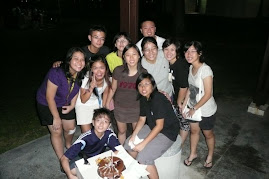George is a very vocal person and tends to say what is on his mind without considering the feelings of others. George was the head of the programme committee of one of the projects. His fellow committee members were Jane, Elizabeth and Tom. Tom and George are best friends and have known each other for nearly eight years. However, unlike George, Tom is a rather passive person.
During one of the meetings, Tom gave a suggestion on what should be done for their programme proposal. Upon listening to Tom’s suggestion, George immediately said that it was a really stupid idea and asked Tom to make more constructive comments. To the surprise of everyone, Tom shouted at George. Tom told George that he was too arrogant and that he had enough of his rude comments. Tom then left the venue of the meeting and headed home. One of the reasons why the normally passive Tom lost his temper was because he was facing some family problems. His parents were on the verge of divorce and he was quite upset about it, so he finally lost his temper.
Jane and Elizabeth actually agreed with Tom and told George that he was being too insensitive to the feelings of others. They felt that George should apologize to Tom, and said that they would continue their discussion only after this matter had been resolved. The proposal was going to be due soon and it would be rather difficult for George to finish it alone.
For the next few days, George tried to apologize to Tom but Tom gave him the cold shoulder. What could George do to appease his best friend and to get the whole team back together?
Saturday, August 30, 2008
Sunday, August 24, 2008
Effective Communication
There had been situations where I faced problems in communication. For example, when I chat with my friends on the Internet, we had misunderstandings because of misinterpretations of the words used. Also, there were times when I was unable to convey my message to people verbally. Hence, I feel that effective communication skills are required to prevent miscommunication.
Some of the communication skills include oral communication and active listening. These are the few skills I particularly need to improve on.
Oral communication is a mode of communication frequently used in our daily lives. However, there are certain barriers that could be present when conversing with someone. An example is cultural differences. People from different countries and cultures could face difficulties understanding and communicating with each other, because of different slangs and accents, even when we are speaking the same language. Effective oral communication is also important in securing a job in the future. During job interviews, we may have to make presentations and try to convince our interviewers that we are capable and suitable for the job. Thus, I feel that developing effective oral communication skills and overcoming communication barriers are essential.
Developing active listening is important as communication is a two way process. Occasionally, I get distracted when my friends are talking because I do a few things simultaneously. These distractions cause me to miss out on some important details of the conversation, and can sometimes lead to miscommunication. Miscommunication between friends could be resolved quickly. However, I feel that if active listening is not exercised in some situations like meetings in workplace or school and receiving instructions from your superior, the consequences can be disastrous. Hence, developing active listening skills is just as important as having good oral communication skills.
Certainly, apart from oral communication and active listening, developing other forms of communication skills will also be useful.
Some of the communication skills include oral communication and active listening. These are the few skills I particularly need to improve on.
Oral communication is a mode of communication frequently used in our daily lives. However, there are certain barriers that could be present when conversing with someone. An example is cultural differences. People from different countries and cultures could face difficulties understanding and communicating with each other, because of different slangs and accents, even when we are speaking the same language. Effective oral communication is also important in securing a job in the future. During job interviews, we may have to make presentations and try to convince our interviewers that we are capable and suitable for the job. Thus, I feel that developing effective oral communication skills and overcoming communication barriers are essential.
Developing active listening is important as communication is a two way process. Occasionally, I get distracted when my friends are talking because I do a few things simultaneously. These distractions cause me to miss out on some important details of the conversation, and can sometimes lead to miscommunication. Miscommunication between friends could be resolved quickly. However, I feel that if active listening is not exercised in some situations like meetings in workplace or school and receiving instructions from your superior, the consequences can be disastrous. Hence, developing active listening skills is just as important as having good oral communication skills.
Certainly, apart from oral communication and active listening, developing other forms of communication skills will also be useful.
Subscribe to:
Posts (Atom)


